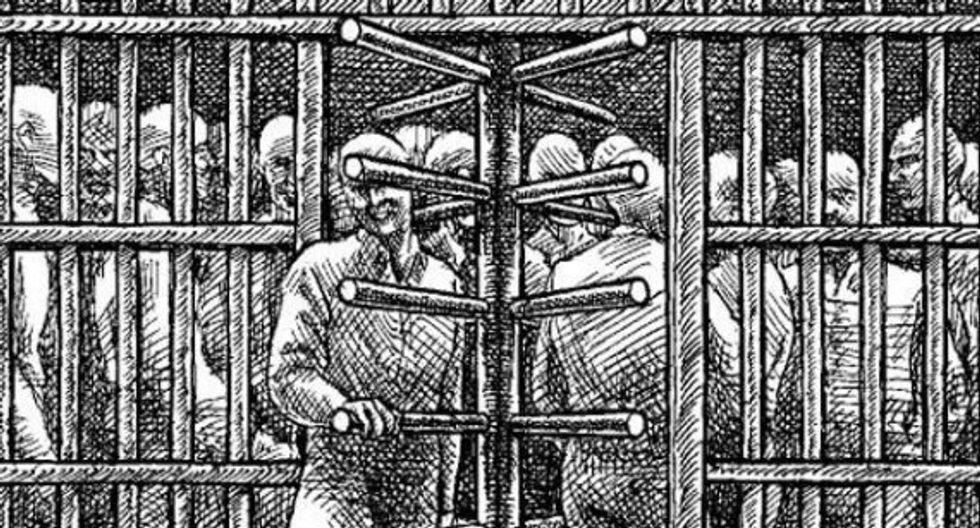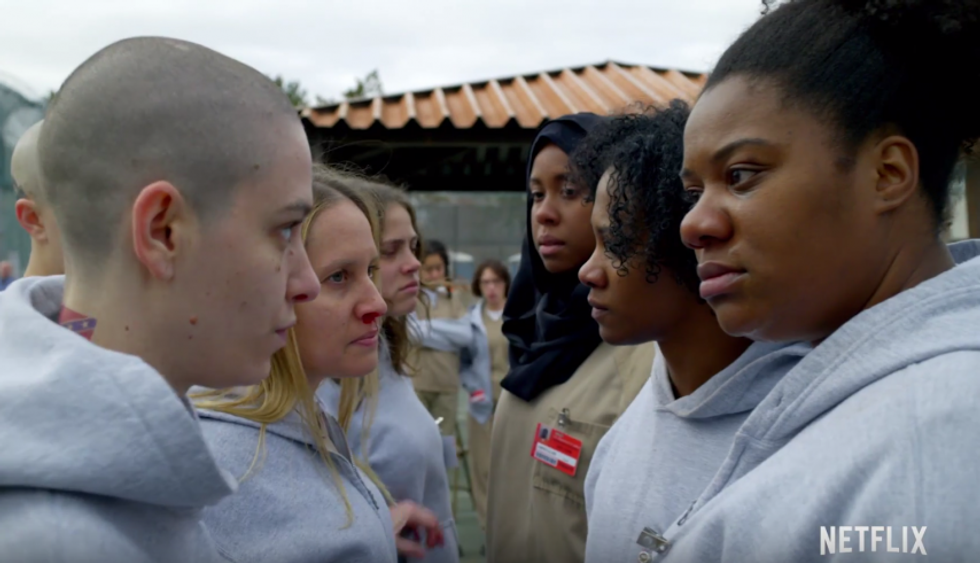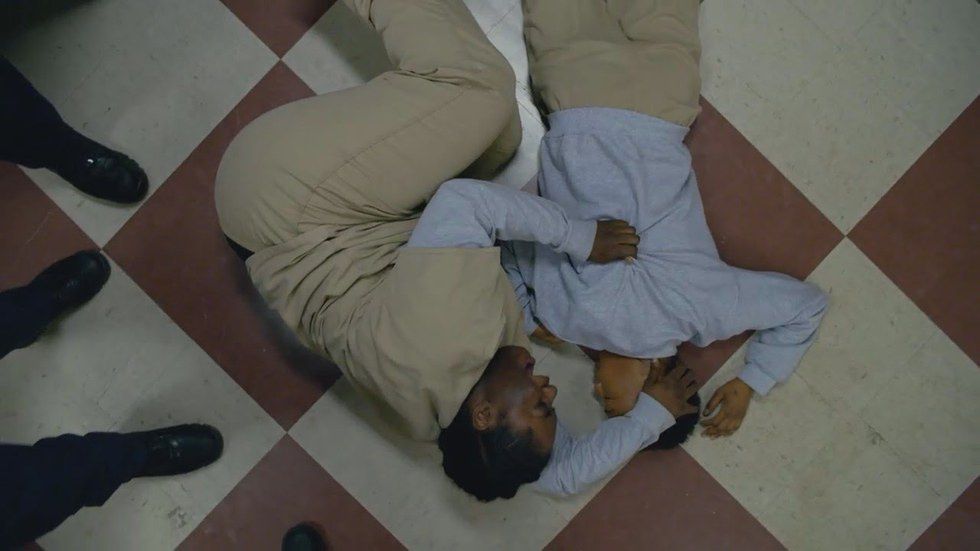*Spoilers Ahead*
The Emmy award-winning Netflix series "Orange is the New Black" has been a trailblazer for television shows tackling modern-day issues, particularly ones affecting inmates in our prison system. Its fourth season, which premiered on Netflix earlier this June, is no exception to this rule.This season was particularly successful in addressing issues such as racial violence and the corruption of corporate-run prisons.
Late in Season Three, the Litchfield Penitentiary is taken over by Management & Correction Corporation (MCC), a private company looking to profit from the prison system. Almost immediately after they have control, the inmate population is almost doubled in one fell swoop. It becomes very clear that the MCC is only concerned with how much money they can make and have no regard for inmates in their care. This, unfortunately seems to be the reality for many prisoners in this country. According to SharedJustice.org, two-thirds of of prisoners released prisoners will be rearrested within three years. Prison has become a revolving door because inmates are not being given the proper tools to be able to make lives for themselves once they have finished their sentences. This kind of corruption needs to stop and it isn't just up to the inmates to stop it.
Another issue that arose this season was racial violence. Throughout the course of the season there was a large amount of growing tension between the white, black and Hispanic populations in the prison. The most prominent example of this is the group of very vocal Neo-Nazis who enter the prison in the wave of new inmates. Their very blatant racism is very hard to swallow but shows a harsh reality that we as a society are choosing to ignore.
Then there was the dramatic climax of the season, the death of Poussey Washington.
As a fan of the show, I was devastated to see one of my favorite characters go in such a horrible way, but I understand why it was necessary. Her accidental passing was evocative of several controversial police brutality cases that have come to light in the past two years: Eric Garner, Michael Brown and Sandra Bland. Her death is beginning a discussion about the treatment of prisoners of color. According to MappingPoliceViolence.org, of the 60 police departments examined in 2015, 41 of them disproportionately killed black civilians (41-percent of victims) despite only being about 20-percent of the population. This is a horrible travesty that needs to be stopped and storylines in prominent television shows like "Orange is the New Black" bring us that much closer to solving the problem, but we can't let the conversation dies. When we stop talking, people in power stop listening.
To learn more about these issues visit Shared Justice or the official website for Black Lives Matter and be sure to watch "Orange is the New Black" on Netflix.






















